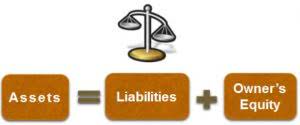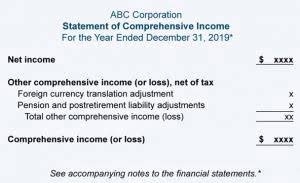
They can also invoice your clients on your behalf, collect monthly payments, and manage your payroll service. While you pay for these services, you’ll save in time you can put toward growing your company. Bookkeeping is often seen as the ordinary side of running a medical practice, overshadowed by the more trendy aspects of patient care and medical advancements. However, the importance of bookkeeping for doctors and medical practices cannot be large. It serves as the backbone of financial management in the healthcare sector, offering a wide range of benefits that directly impact the success and sustainability of medical practices.

Benefits of Recurring Invoices or How to Automate Your Accounting With Recurring Invoicing
- It’s about placing a health care facility in the best position possible to provide high-quality, difference-making patient care.
- The income statement, balance sheet, and cash flow statement are essential financial statements generated from accurate, up-to-date books.
- Your practice’s financial statements provide insight into its financial health.
- As a physician or other medical worker, your primary focus is likely to be on patient care — not the tedious details afterward.
- Its suite of products works together to offer a streamlined accounting solution that keeps your finances in order, even when you’re busy tending to your patients.
For businesses operating in the medical industry—whether as a private professional practice or another type of firm—there are some unique bookkeeping issues that must be addressed. Among other things, this includes certain state/federal regulations, vendor & supplier payments, and complex payroll needs. When you keep your personal and business accounts separate, it makes for easier bookkeeping.
Bookkeeping in the Medical Office: 3 Tips
You’ll also want to make sure that you set up a business bank account to keep your business finances separate from your personal finances. It is a comprehensive document that explains not only your services but also your market and the competitive advantage you’ll have in your business. We’ve looked at dozens of companies offering bookkeeping services and narrowed it down to what we think will work best for small businesses. Each may offer slightly different services and features, so choose the one that best suits your business needs. There are several online bookkeeping services available, but we’ve identified the best in terms of pricing, features, and quality of service. You will likely want to establish a business banking account and credit card.
Medical Billing and Coding
These documents provide a comprehensive view of the practice’s financial health, showing assets, liabilities, revenues, expenses, and cash flow. It advertises a start-from price of $200 but the fine print indicates that the first month of full-service bookkeeping is $500. The ongoing monthly fee will be based on average monthly business expenses and is $200 for monthly average $0 – $10,000 per month, $300 for $10,001 – $50,000 per month, $400 for $50,001 or more. You’ll also have to pay for a QuickBooks Online subscription on top of that.

Nav’s Final Word: Bookkeeping Services
- By recording this information in your bookkeeping software, saving all receipts, and cross-checking bank statements, you will be able to avoid accounting headaches and prevent lost revenue.
- Compliance with healthcare regulations is a moving target due to frequent legislative changes.
- Accurate bookkeeping services for doctors enables budgeting and financial planning, which help medical practices allocate resources effectively, improve patient care, and maintain their long-term viability.
- For doctors and other medical professionals, keeping accurate books is essential to running a successful practice.
- After deciding on criteria for evaluating the software and then researching the app itself, we tested the app, noting its strengths and weaknesses.
- When it comes to your bookkeeping, you want to ensure that everything is accurate and up-to-date.
- With this approach, expenses are recorded when they are paid, and revenues are recorded when payment is received.
While this does temporarily relieve the situation, it can lead to bookkeeping errors that result in penalties for delayed tax payments. By paying and recording taxes immediately, your practice will not only avoid errors and penalties but will also help avoid a large lump sum tax bill at the end of the year. Accrual accounting is a method that lets healthcare accountants record expenses when bills are received, regardless bookkeeping for medical practices of when they are paid. While accrual accounting typically provides a more accurate representation of a practice’s financial position, many medical practitioners find it challenging to implement due to its complexity. Value-based payments regulated by the Centers for Medicare and Medicaid Services are also an increasingly important revenue consideration for health care providers, especially doctor’s offices.

The Importance of Bookkeeping and Accounting in Healthcare
For doctors and other medical workers, specialized bookkeeping systems like QuickBooks and Xero are effective allies. They provide effective solutions for handling finances, payroll services, and tax compliance. These technologies are extremely useful since they can be integrated with practice management software and have their chart of accounts customized to suit the needs of the healthcare industry. While patient care continues to be at the forefront of medicine, efficient bookkeeping serves as the foundation for the financial success and stability of medical operations. In the world of healthcare, accurate and efficient bookkeeping is essential for maintaining financial health and ensuring compliance with complex regulations. The unique aspects of https://www.bookstime.com/, including patient billing, insurance claims, and compliance requirements, demand a specialized approach.
- Reviews have not been reviewed, approved or otherwise endorsed by the credit card, financing and service companies and it is not their responsibility to ensure all posts and/or questions are answered.
- By keeping accurate records, medical practitioners can make informed financial decisions, such as investing in new equipment, hiring more staff, or expanding their practice.
- Nav uses the Vantage 3.0 credit score to determine which credit offers are recommended which may differ from the credit score used by lenders and service providers.
- They give a trustworthy record of financial transactions, exemplifying moral and legal behavior and assisting medical professionals in making confident decisions in potentially perilous circumstances.
- The ongoing monthly fee will be based on average monthly business expenses and is $200 for monthly average $0 – $10,000 per month, $300 for $10,001 – $50,000 per month, $400 for $50,001 or more.

This entry was posted on Wednesday, June 2nd, 2021 at 3:47 pm
You can follow any responses to this entry through the RSS 2.0 feed.
Posted in: Bookkeeping
